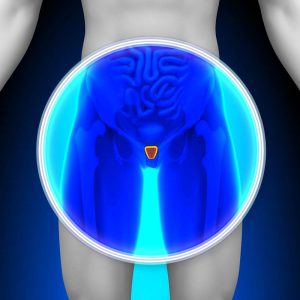The world of modern medicine is a fascinating place. Every day new discoveries, techniques and technological innovations advance the art and science of the medical profession, and as a result, the human family flourishes. Even so, doctors are not supermen, nor is medicine infallible. While it’s true that many of the most profoundly deleterious medical conditions known to man have been cured entirely or had their effects circumvented, there are still problems and mysteries waiting to be solved. One such puzzle involves the possible links between phytoestrogens and infertility, particularly male infertility. To learn more about phytoestrogens and their role in male fertility, read on.
What Are Phytoestrogens?
 Phytoestrogens are naturally occurring chemical compounds found in a great variety of plants, both domestic and wild. They are the plant-based analog to various hormones present in the bodies of human or animals, and while they do offer some benefit when consumed in moderation—as shown by their presence in the diets of many cultures—if ingested in adequate quantities, phytoestrogens can cause various imbalances and related problems. For example, the chemicals spoken of in this post mimic several sub-types of the estrogen hormone, which plays a direct role in the human fertility cycle (as well as those of many animals).
Phytoestrogens are naturally occurring chemical compounds found in a great variety of plants, both domestic and wild. They are the plant-based analog to various hormones present in the bodies of human or animals, and while they do offer some benefit when consumed in moderation—as shown by their presence in the diets of many cultures—if ingested in adequate quantities, phytoestrogens can cause various imbalances and related problems. For example, the chemicals spoken of in this post mimic several sub-types of the estrogen hormone, which plays a direct role in the human fertility cycle (as well as those of many animals).The Negative Relationship Between Phytoestrogens and Male Fertility
TDS (Testicular Dysgenesis Syndrome)
 A relatively unknown but devastating problem, TDS has a direct bearing on male fertility. Manifesting as a wide variety of mild to severe medical issues related to the testicular/penile anatomy and reproductive system, the consequences of contracting this syndrome are at once potent and durable—symptoms are almost always lifelong and keenly felt. They include some or all of the following:
A relatively unknown but devastating problem, TDS has a direct bearing on male fertility. Manifesting as a wide variety of mild to severe medical issues related to the testicular/penile anatomy and reproductive system, the consequences of contracting this syndrome are at once potent and durable—symptoms are almost always lifelong and keenly felt. They include some or all of the following:Skewed Gender Ratios
Prostate Issues
 The prostate is an organ found exclusively in men, the design and function of which revolves around fertility. Up to one-third of the sperm/semen found per instance of ejaculation is estimated to have its origins in the prostate; the seminal fluids which protect the individual sperm against the hostile environment of the vagina are also produced by this organ. Overconsumption of various phytoestrogens can lead to the disease and deterioration of the prostate over time, which, of course, ultimately leads to male infertility (absent a prostate, the body cannot produce the fluids needed to transport and protect the individual sperm produced and housed in the testicles).
The prostate is an organ found exclusively in men, the design and function of which revolves around fertility. Up to one-third of the sperm/semen found per instance of ejaculation is estimated to have its origins in the prostate; the seminal fluids which protect the individual sperm against the hostile environment of the vagina are also produced by this organ. Overconsumption of various phytoestrogens can lead to the disease and deterioration of the prostate over time, which, of course, ultimately leads to male infertility (absent a prostate, the body cannot produce the fluids needed to transport and protect the individual sperm produced and housed in the testicles).


